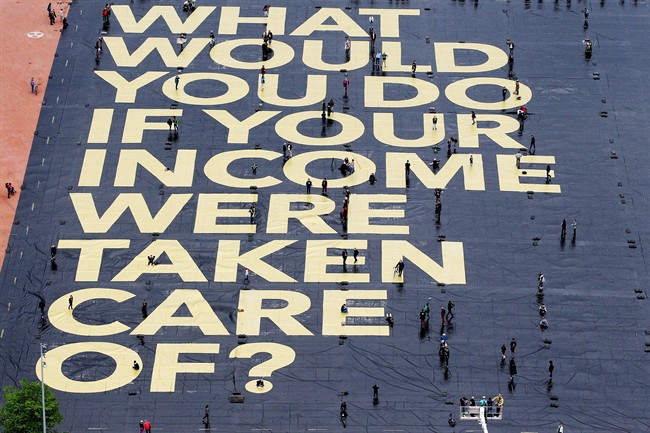LAUSANNE, Switzerland – Swiss voters overwhelmingly rejected a proposal that would have guaranteed everyone in the Alpine nation an unconditional basic income, according to projections published Sunday by public broadcaster SRF1.

The plan could have seen people in this wealthy nation of eight million people receive about 2,500 Swiss francs (C$3,315) per month – enough to cover their basic needs.
READ MORE: How would a guaranteed annual income work in Canada?
Proponents argued that a basic income would free people from meaningless toil and allow them to pursue more productive or creative goals in life. Critics said the plan would explode the state budget and encourage idleness, arguments that appear to have convinced voters.
READ MORE: Ontario to test guaranteed minimum income to ease poverty
Based on a partial count of results from 19 Swiss cantons (states), the gfs.bern polling group calculated that 78 per cent of voters opposed the measure against 22 per cent in favour.
READ MORE: Work woes, evolving technology behind push for basic income
The Swiss government itself advised voters to reject the proposal put forward by left-wing campaigners who collected the necessary 100,000 signatures to force a vote on the issue.
WATCH: There is growing talk about implementing the concept on a national level

But the idea has won over some economists, who say it could replace traditional welfare payments and give everybody the same chances in life.



Comments